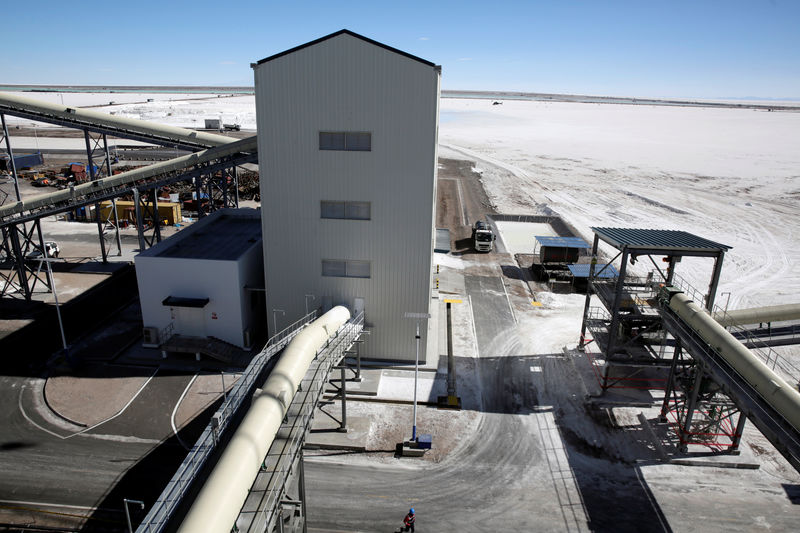By Michael Nienaber
BERLIN (Reuters) - Germany and Bolivia on Wednesday sealed a partnership for the industrial use of lithium, a key raw material for the production of battery cells, in an important step to become less dependent on Asian market leaders in the dawning age of electric cars.
Interest in battery metals such as cobalt, nickel and lithium is soaring as the auto industry scrambles to build more electric cars and cut noxious fumes from vehicles powered by fossil fuels in light of stricter emission rules.
"Germany should become a leading location for battery cell production. A large part of production costs is linked to raw materials," German Economy Minister Peter Altmaier said.
"German industry is therefore well advised to secure its needs for lithium early in order to avoid falling behind and slipping into dependency," Altmaier said, adding that the deal was "an important building block" to secure this supply.
With the joint venture, Bolivian state company YLB is teaming up with Germany's privately-owned ACI Systems to develop its massive Uyuni salt flat and build a lithium hydroxide plant as well as a factory for electric vehicle batteries in Bolivia.
ACI Systems is also in talks to supply companies based in Germany and elsewhere in Europe with lithium from Bolivia.
The joint venture aims to produce up to 40,000 tons of lithium hydroxide per year from 2022 over a period of 70 years.
For Germany, the public-private partnership is part of wider government efforts to support the production of battery cells in Europe and help companies get more control over the value-added chain of electric vehicles.
For Bolivia, the deal to extract lithium from the Uyuni salt flats in the Andes, one of the world's largest deposits, enables the government to bring jobs to a region plagued by poverty and deliver on its pledge to industrialise the economy while upholding environmental and social standards.
Nicole Hoffmeister-Kraut, economy minister of Germany's southwestern state of Baden-Wuerttemberg, the home region of ACI Systems, said the lithium deal would help German carmakers to become less dependent on Asian suppliers of car batteries.
The success of the joint venture now depends on whether both sides can reconcile economic interests with environmental and social requirements, she added.

"Long-term acceptance of the project is only ensured if all players succeed in avoiding any damage to the unique landscape in Bolivia and making it a positive contribution for its native population," Hoffmeister-Kraut said.